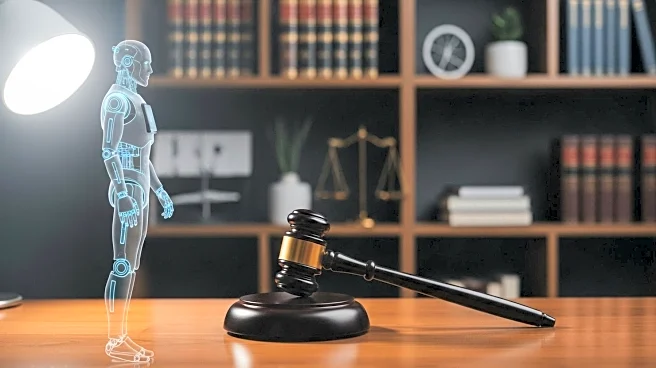What's Happening?
The legal industry is increasingly concerned about the encroachment of artificial intelligence on traditional legal roles. AI's ability to perform tasks such as document review and drafting discovery documents is already relieving lawyers of some routine duties. However, the prospect of AI taking on more complex roles, such as providing legal advice or representing clients in court, raises questions about the future of the profession. The emergence of AI entities like Tilly Norwood, an AI actress, highlights the potential for AI to disrupt industries by bypassing traditional requirements such as union membership and working hour limits. This development prompts speculation about AI's future role in law, including whether AI could bypass bar exams or ethical responsibilities.
Why It's Important?
The integration of AI into legal practice could significantly impact the profession, potentially reducing the need for human lawyers in certain areas. This shift could lead to cost savings for law firms but also raises ethical and regulatory concerns. The possibility of AI handling legal tasks without traditional oversight could lead to challenges in maintaining professional standards and accountability. Additionally, the use of AI in mediation and other legal processes could alter the dynamics of legal practice, affecting employment opportunities and the structure of legal services.
What's Next?
As AI continues to advance, the legal industry may need to adapt by establishing new regulations and ethical guidelines to govern AI's role in legal practice. This could involve creating standards for AI's involvement in legal tasks and ensuring that AI systems are subject to similar accountability measures as human lawyers. The industry may also explore ways to integrate AI into legal education and training, preparing future lawyers for a landscape where AI plays a significant role.
Beyond the Headlines
The potential for AI to act as lawyers raises broader questions about the nature of professional roles and the value of human expertise. As AI systems become more capable, industries may need to redefine what constitutes professional competence and how to balance AI's efficiency with human judgment and ethical considerations.











